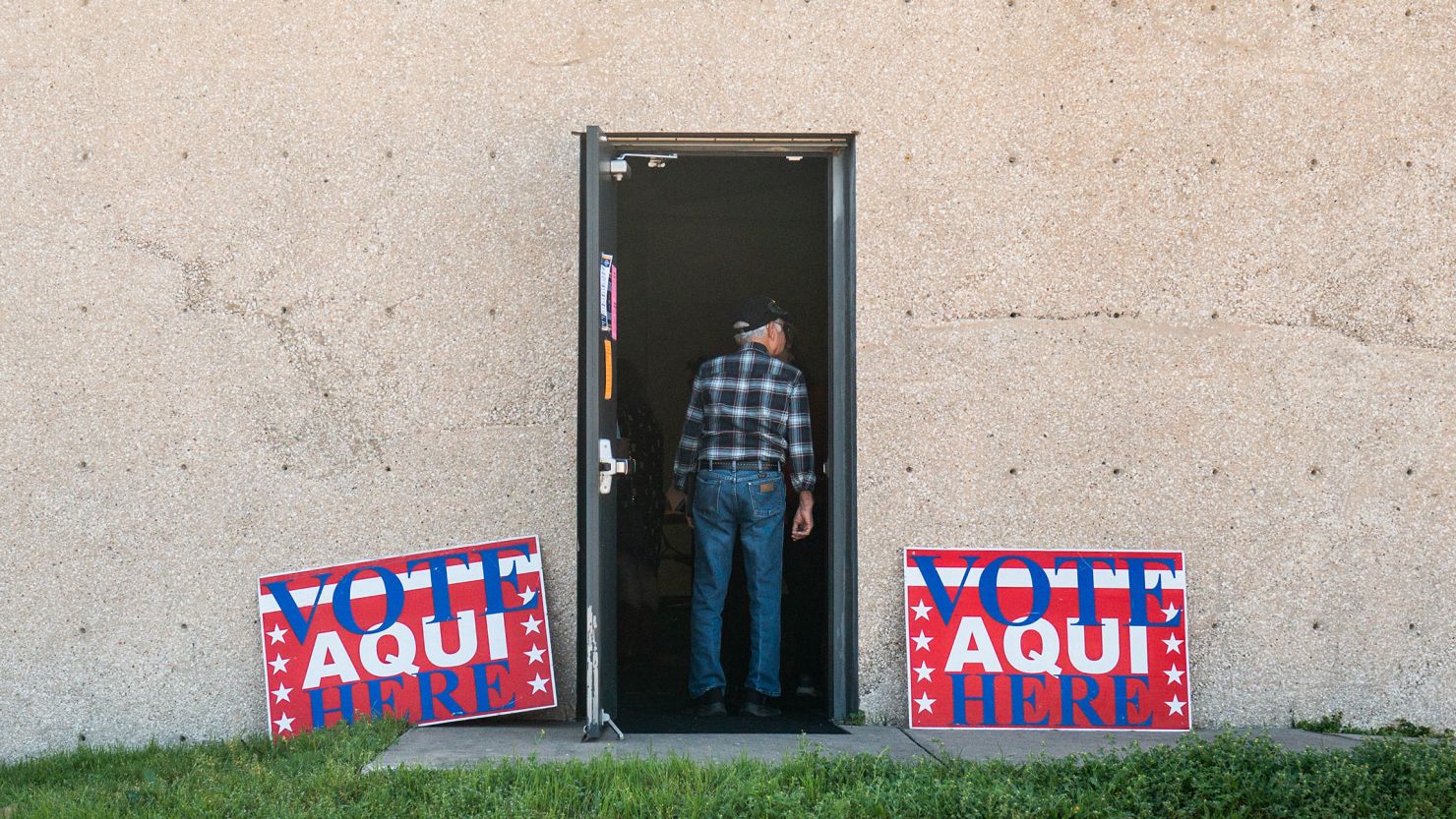Editor’s Note: Andrea Hailey is CEO of Vote.org, a nonpartisan voter registration and get-out-the-vote organization. The opinions expressed in this commentary are her own. View more opinion on CNN.
Across the country, anti-democracy forces in local and state governments have become increasingly creative with their attempts to suppress the vote. They have one goal in mind: maintaining political power by overriding the will of the people. Now, they’re claiming to harness artificial intelligence (AI) to undermine democracy.

In recent months, several states have left a non-profit organization called the Electronic Registration Information Center (ERIC), which helps states run their elections more efficiently by maintaining updated voter rolls. In 2022, 31 states and DC were members of the collective. Nearly a third of those have now left or made moves to leave, many citing debunked conspiracy theories claiming that ERIC is run by left-wing activists. Former President Donald Trump attacked ERIC, falsely, as, “pump[ing] the rolls for Democrats and do[ing] nothing to clean them up.” As the 2024 election gets closer, many of these states have no replacement plans.
Hot on the heels of these states pulling out of ERIC, several anti-voter, anti-democracy individuals have launched EagleAI NETwork, which claims that it uses “AI as well as individual visual comparison of assimilated record data” to “scrape” existing data sources to raise questions about individual voters’ eligibility. According to the Guardian, citing documents obtained through a public records request, one man in Cobb County, Georgia filed at least 176 challenges since December 2023, using a template similar to the one available in EagleAI. The challenges have resulted in numerous removals from county voter rolls, the county elections chair said.
This past December, Georgia’s Columbia County voted to beta-test the software even after the chairman of the State Election Board, William S. Duffey Jr., sent a letter warning that EagleAI may violate state privacy laws and election statutes. Georgia’s elections director, Blake Evans, has expressed his own concerns, noting “EagleAI draws inaccurate conclusions and then presents them as if they are evidence of wrongdoing.”
According to a document authored by its creator Dr. John Richards, EagleAI purportedly “uses multi-tiered algorithms” and “matching AI” to search for information on the internet that could disqualify a voter’s registration. But rather than using only official records or documentation, EagleAI’s creators claim that it goes as far as to crawl public websites for obituaries and even change-of-address forms that one might file when going on a long vacation. As the Brennan Center warns, “investigators” can also use social media sites to find if users have posted outside of their home state, where they’re registered. Then, Richards claims, the system can start the process of auto-filling challenge forms against voters.
This raises many red flags instantly: Voters could simply be visiting another state; two or more voters could simply share the same name; or voters could already be making changes to their registration that haven’t been reflected across every instance of their online footprint. After a voter is flagged, they could have paperwork filed against them challenging their eligibility and be turned away from the polls, or even find themselves not listed on the voter rolls on Election Day. Notably, local PBS station WABE reports that Georgia has been inundated with thousands of challenges filed against individual voters’ eligibility since 2021, though the vast majority of these challenges have been dismissed due to lack of evidence. However, a successfully challenged voter would have no idea that this even happened to them until they attempted to exercise their vote.
The focus of EagleAI appears not to be election integrity, but systematic voter disenfranchisement. As the Brennan Center puts it, “…it’s an attack on voters.”
We can and should use new tech to our advantage — this is an ideal upon which Vote.org was created. In the future, AI could help identify busy polling locations and alternative options for voters on Election Day. It could be a research aid, identifying best practices to encourage voter participation. It could help streamline how voters update their own registration. It should not be used for shrinking the pool of eligible voters. That is voter suppression branded under a trendy moniker.
As defenders of democracy, we have to anchor our work in expanding the electorate, not shrinking it. In the 2020 election, two-thirds of eligible voters cast a ballot. In 2022, that number was 46%. These are relatively high rates, but show the gap in eligibility versus turnout. We should be simplifying voting to bring more people into the process, not targeting those who are exercising their rights. We can only do this if we keep our eye on these types of anti-voter ploys from every angle. As our world becomes more technologically advanced, so too will the threats facing it.




